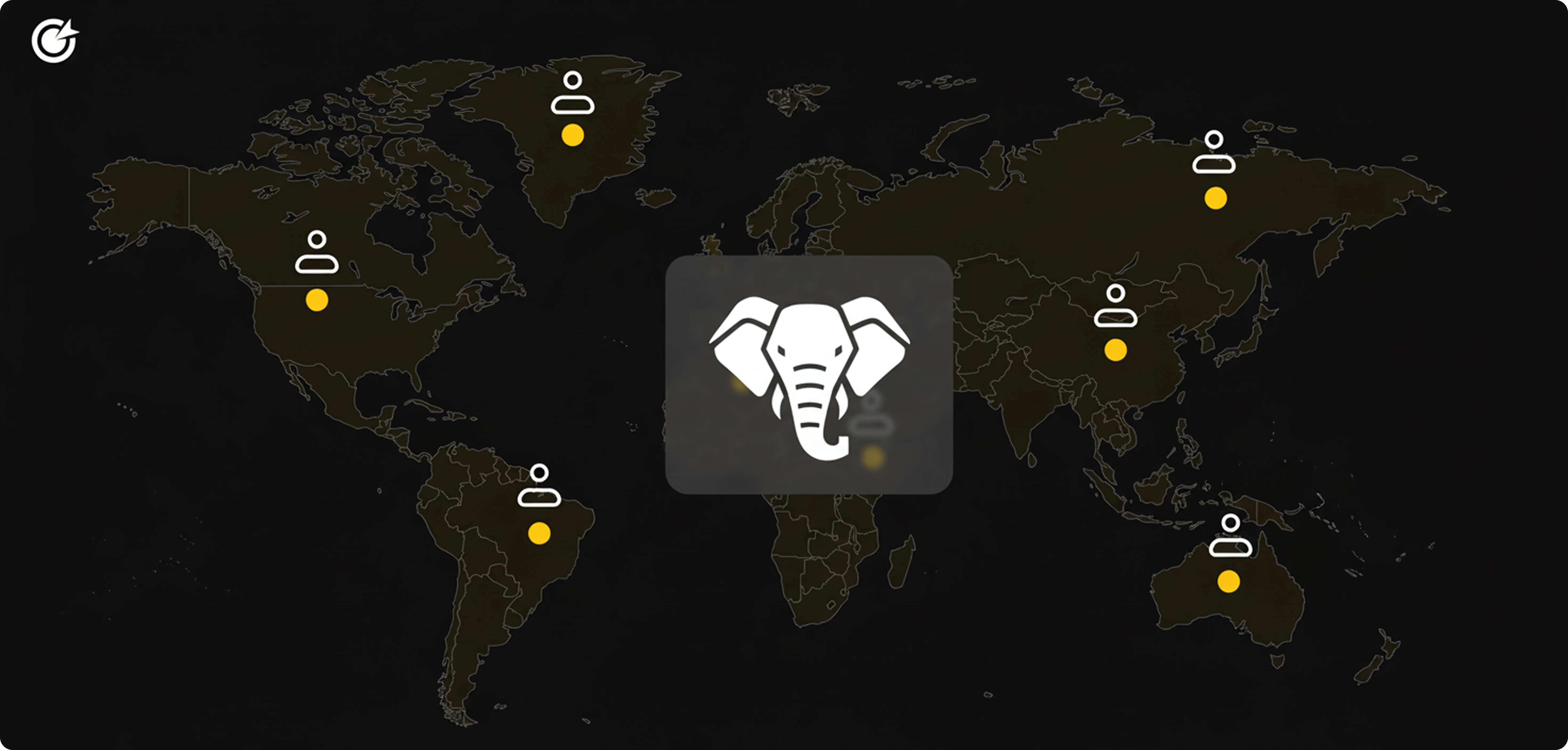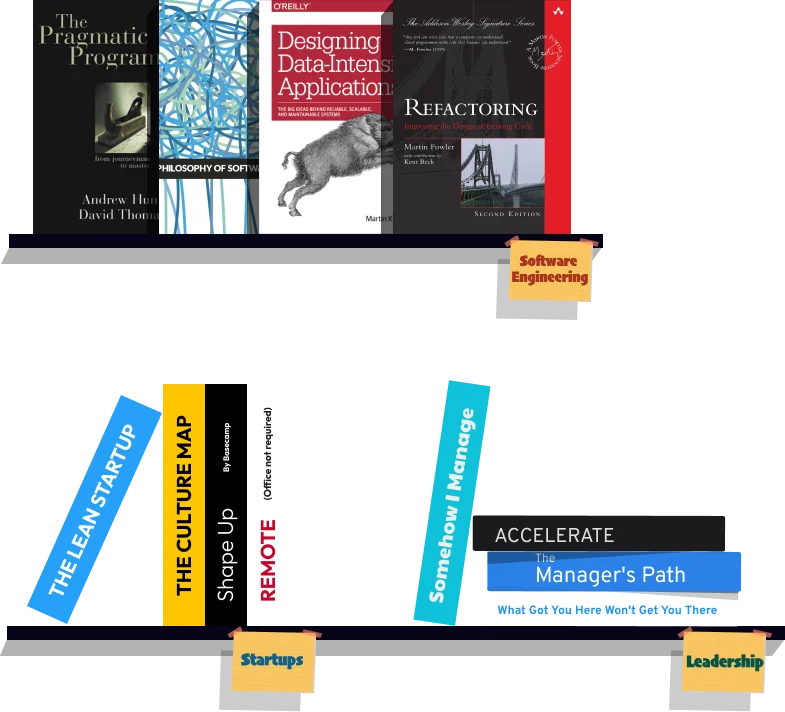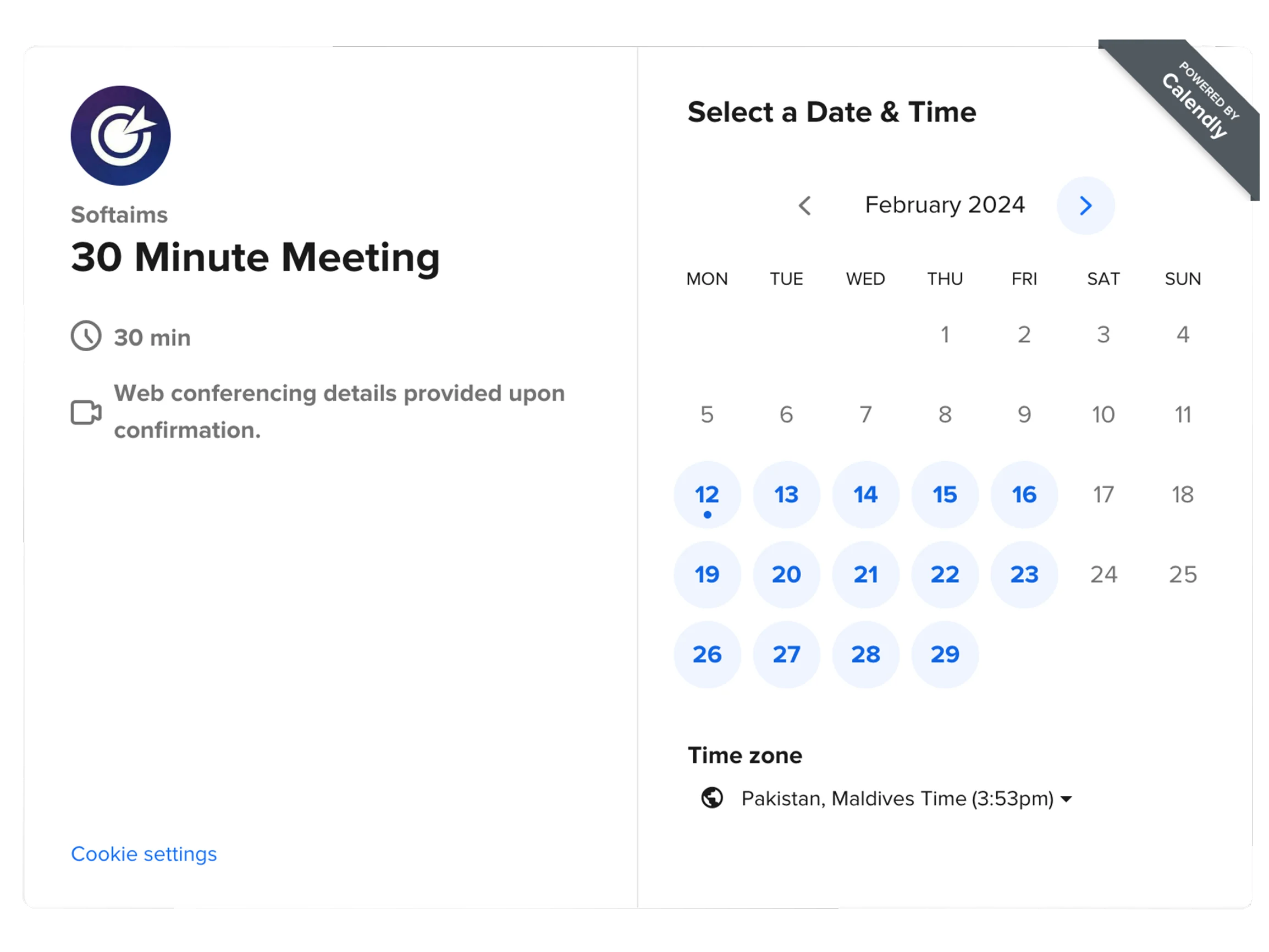The Power and Reliability of PostgreSQL
A developer with PostgreSQL expertise is a backend engineer or database administrator who builds and manages the data layer of an application using the world's most advanced open-source relational database. They leverage PostgreSQL's legendary reliability, powerful feature set, and extensibility to create data systems that are robust, secure, and highly performant.

Hiring for this skill means bringing in a professional who understands the critical importance of data integrity and can architect a database to serve as a true source of truth. Their expertise is crucial for building the scalable and resilient data foundations that modern, data-driven applications depend on.
Advanced SQL and Query Optimization
A top-tier candidate must have a deep and masterful command of SQL. This goes far beyond basic SELECT and JOIN statements. They must be experts at writing complex queries that use advanced features like window functions (e.g., RANK() OVER (PARTITION BY ...)), Common Table Expressions (CTEs), and recursive queries.
Furthermore, they must be obsessed with performance. A key skill is the ability to use the EXPLAIN ANALYZE command to inspect a query's execution plan, identify performance bottlenecks like sequential scans, and then optimize the query or the underlying table structure to ensure it runs as efficiently as possible.
Database Design and Normalization
A proficient PostgreSQL developer must be an expert at data modeling and database design. They need to be able to translate complex business requirements into a logical and efficient relational schema. This requires a deep understanding of database normalization principles to reduce data redundancy and ensure data integrity.
This includes the ability to choose the correct data types for each column, define primary and foreign key constraints to enforce relationships, and use other constraints like CHECK and UNIQUE to maintain the quality of the data. A well-designed schema is the foundation of a healthy and maintainable database.
Indexing Strategies
The key to a high-performance database is a well-thought-out indexing strategy, and PostgreSQL offers a rich set of indexing options. A skilled developer must have a deep understanding of the different index types and know when to use them. This includes the standard B-tree index, as well as more specialized types like GIN for full-text search or GiST for geospatial data.
They should be able to create partial indexes to index only a subset of a table's rows and covering indexes to speed up index-only scans. The ability to analyze query patterns and create the optimal set of indexes is a critical skill that directly impacts application performance.
Transactions and Concurrency Control
PostgreSQL is renowned for its robust support for transactions and its implementation of Multi-Version Concurrency Control (MVCC). A candidate must have a solid understanding of the principles of database transactions and the importance of ACID (Atomicity, Consistency, Isolation, Durability) compliance.
They should be able to manage transactions within their application code (e.g., with BEGIN and COMMIT) and understand the different transaction isolation levels and their trade-offs. This knowledge is essential for writing correct and reliable code that can handle concurrent operations without corrupting data.
Stored Procedures, Functions, and Triggers
For encapsulating business logic directly within the database, a developer should be proficient at writing server-side code. They must have experience writing stored procedures and functions using PostgreSQL's native procedural language, PL/pgSQL. This allows them to execute complex operations on the server, reducing network round-trips.
They should also be skilled at using triggers, which are special functions that are automatically executed in response to certain events, such as an INSERT or UPDATE on a table. These are powerful tools for enforcing complex business rules and maintaining data integrity.
Advanced PostgreSQL Features
What truly sets a senior PostgreSQL developer apart is their knowledge of the database's advanced and unique features. PostgreSQL is highly extensible and supports a wide range of data types and functionalities that are not found in other databases. This demonstrates a deep engagement with the ecosystem.
Experience with features like native JSONB support for storing and querying JSON documents, PostGIS for geospatial data, or full-text search capabilities are all highly valuable skills. A developer who can leverage these advanced features can often solve complex problems more efficiently and elegantly than with a more basic database.
Administration and Maintenance
While they may not be a dedicated Database Administrator (DBA), a well-rounded developer with PostgreSQL skills should be comfortable with basic administration and maintenance tasks. This includes an understanding of how to manage user roles and permissions to secure the database.
They should be familiar with the PostgreSQL command-line client (psql) and common maintenance operations, such as running VACUUM to reclaim storage and prevent table bloat. They should also have a solid understanding of backup and recovery strategies using tools like pg_dump and pg_restore.
Replication and High Availability
For any production system, high availability is a critical concern. An experienced developer should have a solid understanding of PostgreSQL's replication capabilities. They need to be familiar with the concept of setting up a streaming replication from a primary server to one or more standby replicas.
This knowledge is crucial for designing a system that can provide read scaling by directing query traffic to the replicas, as well as for implementing a high-availability solution that can automatically fail over to a standby server if the primary becomes unavailable. This is an essential skill for building resilient, production-grade applications.
Connecting to an Application
A database is only useful when an application can connect to it. A PostgreSQL developer must be proficient at using the appropriate database drivers and libraries for their primary backend language, such as psycopg2 for Python or JDBC for Java. They should know how to manage a connection pool to handle connections efficiently.
They should also be comfortable working with an Object-Relational Mapper (ORM) like SQLAlchemy or Hibernate, which is a common way for application code to interact with the database. However, they should also be able to drop down to raw SQL when necessary for performance or complexity.
How Much Does It Cost to Hire a PostgreSQL Developer
The cost to hire a developer with deep PostgreSQL expertise, typically a senior backend engineer or a DBA, is high. This reflects the critical importance of the data layer and the advanced skill set required to manage a high-performance, enterprise-grade relational database. The salary is influenced by their geographic location, overall years of experience, and their expertise in areas like performance tuning and high availability.
Tech hubs in North America and Western Europe have the highest salary expectations. The following table provides an estimated average annual salary for a senior developer with strong PostgreSQL skills.
| Country |
Average Annual Salary (USD) |
| United States |
$140,000 |
| Switzerland |
$130,000 |
| United Kingdom |
$95,000 |
| Germany |
$92,000 |
| Canada |
$110,000 |
| Poland |
$68,000 |
| Ukraine |
$65,000 |
| India |
$50,000 |
| Brazil |
$60,000 |
| Netherlands |
$98,000 |
When to Hire Dedicated PostgreSQL Developers Versus Freelance PostgreSQL Developers
Hiring a dedicated, full-time PostgreSQL developer or DBA is the right choice when the database is a core, mission-critical component of your business. A dedicated expert will take long-term ownership of the data architecture, performance, security, and reliability of your primary data store. This is an essential role for any data-intensive application.
Hiring a freelance PostgreSQL consultant is a highly effective tactical decision for specific, well-defined projects. This is an ideal model for migrating a database from another system to PostgreSQL, getting an expert performance audit and tuning session, or designing the initial schema for a new project. Freelancers can provide a burst of world-class expertise on demand.
Why Do Companies Hire PostgreSQL Developers
Companies hire PostgreSQL developers because it is widely regarded as the most advanced and feature-rich open-source relational database in the world. It offers enterprise-grade reliability, data integrity, and performance without the high licensing costs of commercial databases. Its strict adherence to the SQL standard and its robust ACID compliance make it a trusted choice for building a reliable source of truth.
Furthermore, PostgreSQL is highly extensible and supports a vast array of advanced features, from native JSONB support to powerful geospatial capabilities with PostGIS. This allows developers to solve a wide range of complex problems within a single, consistent data platform. For these reasons, it has become the default choice for startups and large enterprises alike who need a powerful, reliable, and open-source database.
In conclusion, hiring a top-tier PostgreSQL developer means finding an engineer who has a deep and passionate commitment to data integrity, performance, and reliability. The ideal candidate will combine a mastery of advanced SQL and database design with the practical skills needed to administer, optimize, and scale a production database. By prioritizing these skills, organizations can build the rock-solid and high-performance data foundation that is essential for any successful and scalable application.



































